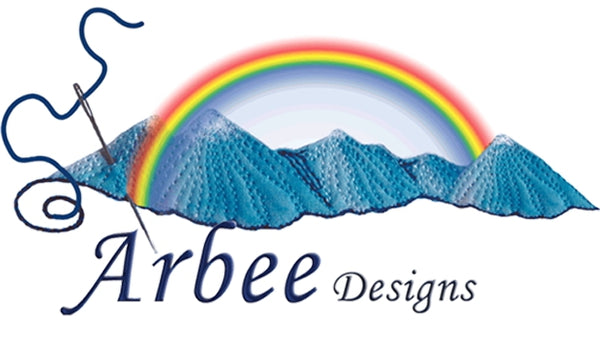Another week has flown by, can you believe it? Here's our recap of the previous weeks just in case you missed them:
- Requirements
- Rail Fence Block
- 9-Patch Block
- Flip Block
- Friendship Star Block
- Log Cabin Block
- Pre-order the whole pattern plus additional designs as they are released

This week is we are taking a look at the flying geese block. This is another block that can be made a number of ways. You can use the half square triangle method used for our Friendship Star block (by making two squares and joining them together) or you can use the Flip Corner method or you can use foundation piecing method. Since we have already learned the first two methods let's take a look at foundation piecing. You can use either of the other methods if you choose or try this instead.
Note: I have included directions for Flip Corner in the pattern for those who prefer not to foundation piece these two blocks. It is an easy method when making just a few Flying Geese however may not be quite as accurate.
Tip: For foundation piecing, I find it helpful to cut the rectangles slightly larger than accurate size given below. This allows a little room for movement. Blocks will be trimmed once completed.
You will need:
- Fabric 1: TWO 3 1/2" x 6 1/2" rectangles
- Fabric 4: ONE 3 1/2" strip
- Fabric 9: TWO 3 1/2" x 6 1/2" rectangles
- TWO printed foundation templates (click the link to print them off)
The FOUR rectangles (Fabrics 1 and 9) form the 'geese' of the blocks.
Print the Flying Geese template and cut around the outer line.
Set your stitch length on your sewing machine slightly shorter than normal. With the perforations closer together, the paper is easier to remove without distorting the seam.
You can use the Fabric 4 strip as is or you may cut this strip up into 3 1/2" squares. Note: if you do, you will need to EIGHT in total.
Step 1: Place Fabric 1 rectangle onto back of paper (unprinted side) with WRONG side of fabric against paper. Add a dab of glue if you wish to hold it in place. You'll want a water-soluble glue. Most regular glue sticks are, but be sure to check.

Place Flying Goose rectangle, wrong sides facing onto paper
Step 2: Place Fabric 4 strip on top of corner to cover A2 section on template so RS of fabric are together.
Carefully, turn over to paper side and stitch along seam line between A1 and A2 on foundation. Be careful not to stitch past end of line in the center.

Sections one and two stitched
Tip: Turn to fabric side. Fold Fabric 4 section over seam and finger press in place to ensure fabric covers the section, then fold it back out of the way. (Note: this isn’t necessary however it’s always good to check before cutting)
Step 3: On printed side, fold PAPER along seam line between A1 and A2 to expose fabrics underneath. (Tip: Use a thin piece of card or greeting card to help with this) Trim fabric parallel to paper leaving 1/4" seam allowance FROM paper fold. DO NOT cut the piece that covers the section - it should be folded back, only trim the seam allowance.

Fold paper and trim leaving 1/4" seam allowance
Fold paper back into place. Fold the fabric section into place and press firmly. Trim strip (if necessary) leaving at least 1/4" seam allowance.

First two pieces in place
Step 4: Repeat steps 2-3 to add background section to other side of rectangle.
Fold paper along the bottom of A4 and trim any excess fabric leaving 1/4" seam allowance from fold in paper, ready to add next rectangle.

First of two geese completed
With the first section completed, it is now time to add the second goose by sewing Fabric 9 rectangle in place in the same way. Repeat the steps above to add the remaining TWO Background sections.
When all pieces have been added, trim whole block leaving 1/4" seam allowance from solid line. Trim from the paper side using the lines as guidance.
Do not remove paper just yet. This will be done after blocks are sewn together.

Block finished and trimmed
Now make a second one just the same.
Were you pleased with how easily you kept all your sharp points? Leave me a comment and let us know.
I've added couple of ideas you might like to try below. Foundations are included in this week's issue as well as full details to create them: Sampler Quilt: Part 5 - Log Cabin
Happy Quilting!

Southward Bound

Echoing Stars






